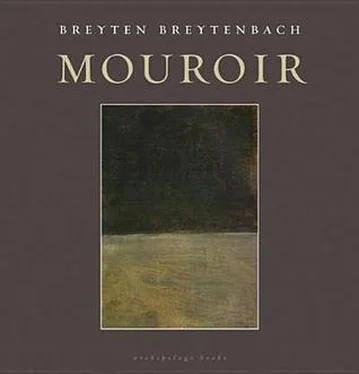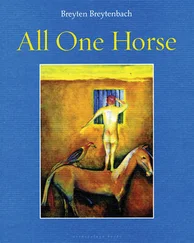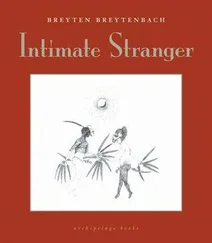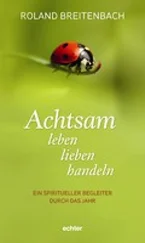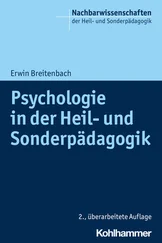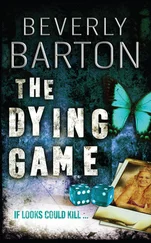A place once named is not afterwards supposed to move again. Naming is taming. It is casting the arbitrary over the unknown. It may well be that these name-places took root in man’s mind, became reference points, barriers to the boundless. However it may be, it would seem that they constituted roughly the points of the star over which the herd and its adopted human lived. It was the birthplace and the lair of the sirocco, and other fever-laden winds shooting forth their rustling tongues to insatiably lick up any moisture or coolness. Distances were hazy from a lack of obstacles. Around the rim the sky was cemented to the earth by a thinnish grout of greyness. Water was a pittance always to be searched for all over again. Flora was scarce, nondescript: in good years a meagre crop of frutescent growths to sustain the earth, and strewn across the floor of a wadi some pots of small shade perhaps sprouting a rare miniature cyclamen. Fauna was even more rare: lizards and ants living off ants, the odd sand-tinted jackal harbouring incongruously the human wail, at times the grosbeak and the poult. But through this landscape, light, speckled, free, the gazelles in their fugacity. And with them the boy on all fours, naked, as rapid as his companions, nibbling grass, of the same smell and the same destiny, unburdened by any knowing.
Poachers probably first brought the rumours of this strange deer to the dwelling places of man. And from these outposts the rumours spread until they eventually reached the ears of the Academy. It is the function of the Academy to raise questions and then to run these to ground. How, the Academy asked, could this be possible? How could any human — for by all accounts it, the boy, was said to be of the Homo species — how could he survive in such frugal surroundings? and what ought to be done? Must he be captured and brought back, introduced to society? Some argued in favour of this step, others against — as it is the custom of an Academy to disagree. The rumours of the existence of the culturally unclassifiable creature were confirmed. A party had gone out on horseback and through their binoculars they had managed to observe (after a search of many days over this uncharted region) the fugal movements of the gazelles and the boy. The boy, they reported (continuing to refer to him as Boy even though they could glimpse that he had a beard), even acted as a sort of fugleman, leading the high-stepping herd in their flight.
The question of cruelty had to be considered too. What would be the most efficacious way to apprehend this unique hart? For the Academy by its very nature decided the need to know to be paramount: they felt that it was the destiny of man to advance. Or, as some secretly knew, that man must inevitably be brought to fall from grace. One leader stood up in the assembly and justified the general decision by quoting from the Book:
I died from the plant and reappeared in an animal;
I died from the animal and became a man;
Wherefore then should I fear?
When did I grow less by dying?
Next time I shall die from the man,
That I may grow the wings of angels.
From the angel too must I advance;
ALL THINGS SHALL PERISH SAVE HIS FACE.
An expedition was fitted out with nets and gaffs and set out to capture Boy. For days they criss-crossed the rufous labyrinth without walls, with scouts flung out far ahead of the main party. Dust caked their moustaches and their goatees and whitened their garments of fustian and gaberdine. At night the stars whispered of winds and a lone predatory jackal mocked them with the disembodied howl of a knowing human. They succeeded in sighting the gazelles and although it was repeatedly attempted to cordon the herd off or to drive it into some convoluted canyon, they failed. They failed and they saw the rippling fugue of movement as the deer disappeared through cracks between earth and heaven.
And Boy the boy? Will anyone ever know what impressions entered by his senses and what kind of mind these constituted? He reacted to these foreign animals as a deer would. But did he not sense, issuing from some atavistic instinct, the unavoidable defeat brought by these creatures encroaching upon his unknown existence which he knew so exclusively? Of course, like all gazelles, he had come across one of the strangers at some place in the past, fallen in the sand, dead and infested by flies. He had recognized no affinity between himself and such an object. It held no attraction for him. It was inedible and not even moist. It stank, and not just with the familiar putrid smell of decomposition. It was in no way like him, sleek and pure as a buck with a light fuzz over the skin. No, it had had other loose skins around it, fusty and frumpish, a strip around the neck, a glittering string across its paunch, so that its body had been divided into darkened because covered private parts and exposed and thus obscene public parts.
Then — but “then”, time in sequence, could have no contour or contents for Boy in his unmapped being with its fixed edges of nothingness — then these creatures had multiplied like invaders and were now returning, ever after them, perched high on other four-legged beasts with the appearance of bigger hornless deer, each carrying also an upright and sometimes reverberating object. How could he know that these frightening things were fusils, employed to herd them into some cul-de-sac?
What rippled through his consciousness? Perhaps the disintegration of the unquestioned. Perhaps now, to retain some security — if he knew the slithering security of the naming of parts, and by that desire it was already contaminated and being sacrificed for ever — perhaps now he would have named them Abd el Kadel, Mesrour, Ahmed Madrali, Israfel, Al Sirat, Noured Deen, had he known the tongue of man and its corridors. He would have sensed the magic incantations of the arbitrary. And it could not save him or preserve his integration.
It had been a bluish morning. First light had come to the towns of men, shoving under every door a blue slice of incandescence. The Academy had sat the whole night, creaking in their clothes. They had looked into the labyrinths of themselves and they had come up with the solution. What was needed they now knew, was for Boy to see himself and in this way to see the relatedness between himself and those wishing to capture him. And in this way to become alienated from his mates. The whole must be shattered. Their plans were laid. They twirled their moustaches absent-mindedly between thumb and index. Knowledge is self-knowledge, self-abasement. Nothing must be allowed to prevent that terrible destruction, that slipping into the twisting courts of uncertainty and not-belonging. Belonging to not-belonging, belonging to brokenness — can man achieve a more beautiful and more painful integration? They fingered and stroked the mirrors they had acquired, occasionally filling the silvery surfaces with fleeting visions of mortality.
It was a dark morning over the desert. Clouds were cliffs and cascades in the sky. Maybe the rainy season was at last at hand. And juicy grasses would sprout up in its wake. And there would be the traces of insects and other small beasts in the damp crust of an early daybreak. Then the wind scattered the tumbling structures, leaving tracery, a poult-de-soie .
It was finally, once the star was traced in the sand of the mind, not all that difficult to hedge off the herd of buck with Boy still in their midsts. They were backed into a cwm. Did Boy then comprehend the folding in and the blacking out of his horizon? The small herd stood trembling, rolling the eyes, listening with their very hides. The Academicians got off their prancing horses. The ill-smelling beasts with the flapping skins descended from the prancing beasts with the things attached to their bodies. The Academicians took out their mirrors and flashed them, flashed the authority of death which is the reflection of loneliness. The sun was flooding the vast untamed speckled space and pinpointing, burning with heatless flames the instruments of demise.
Читать дальше
